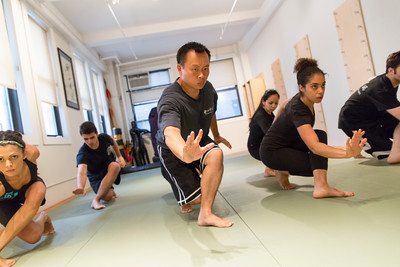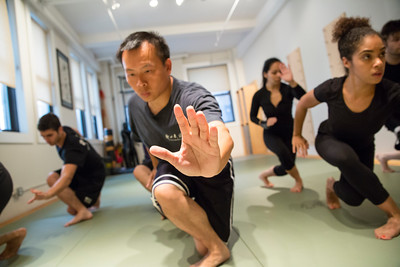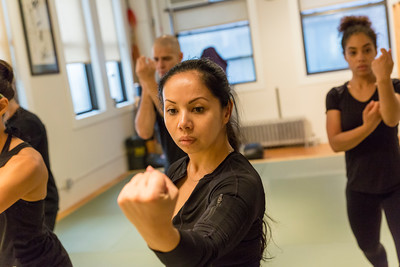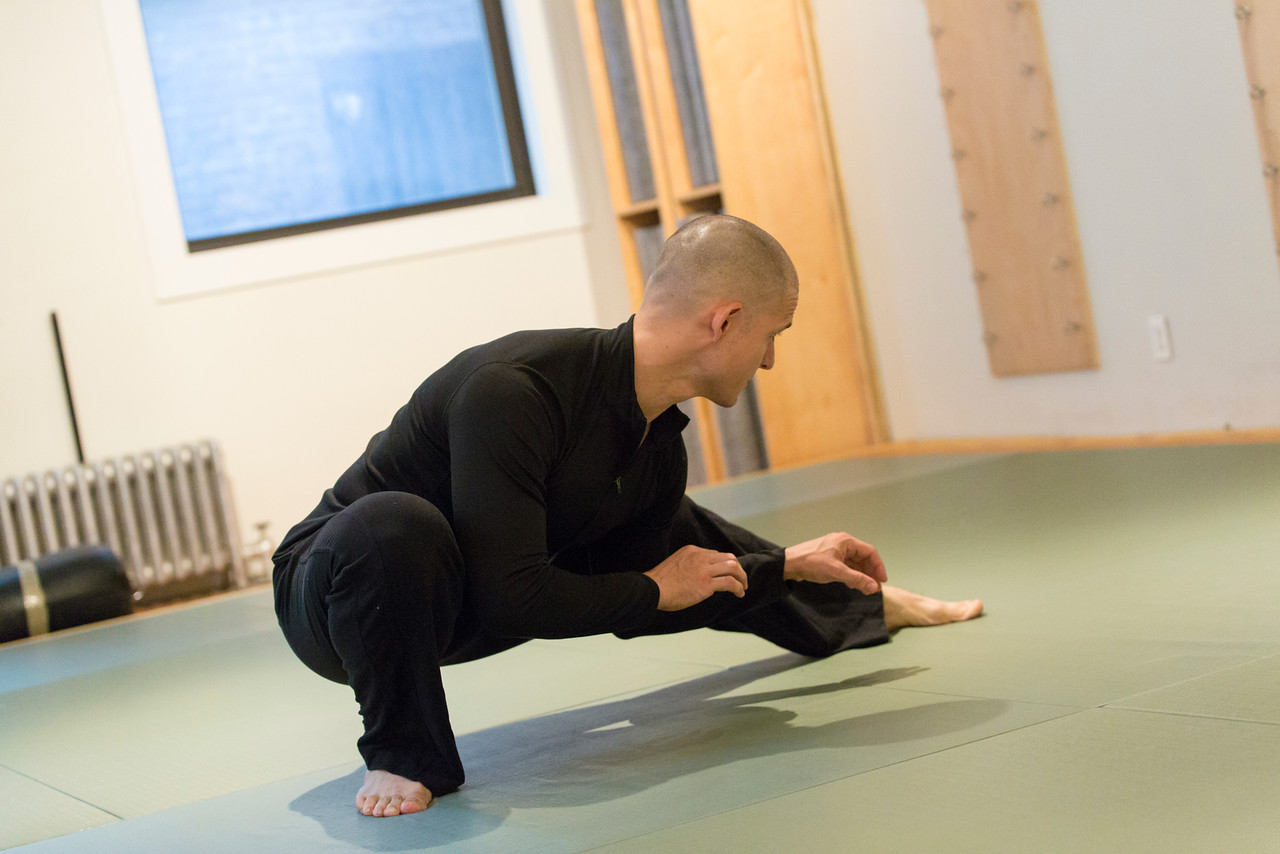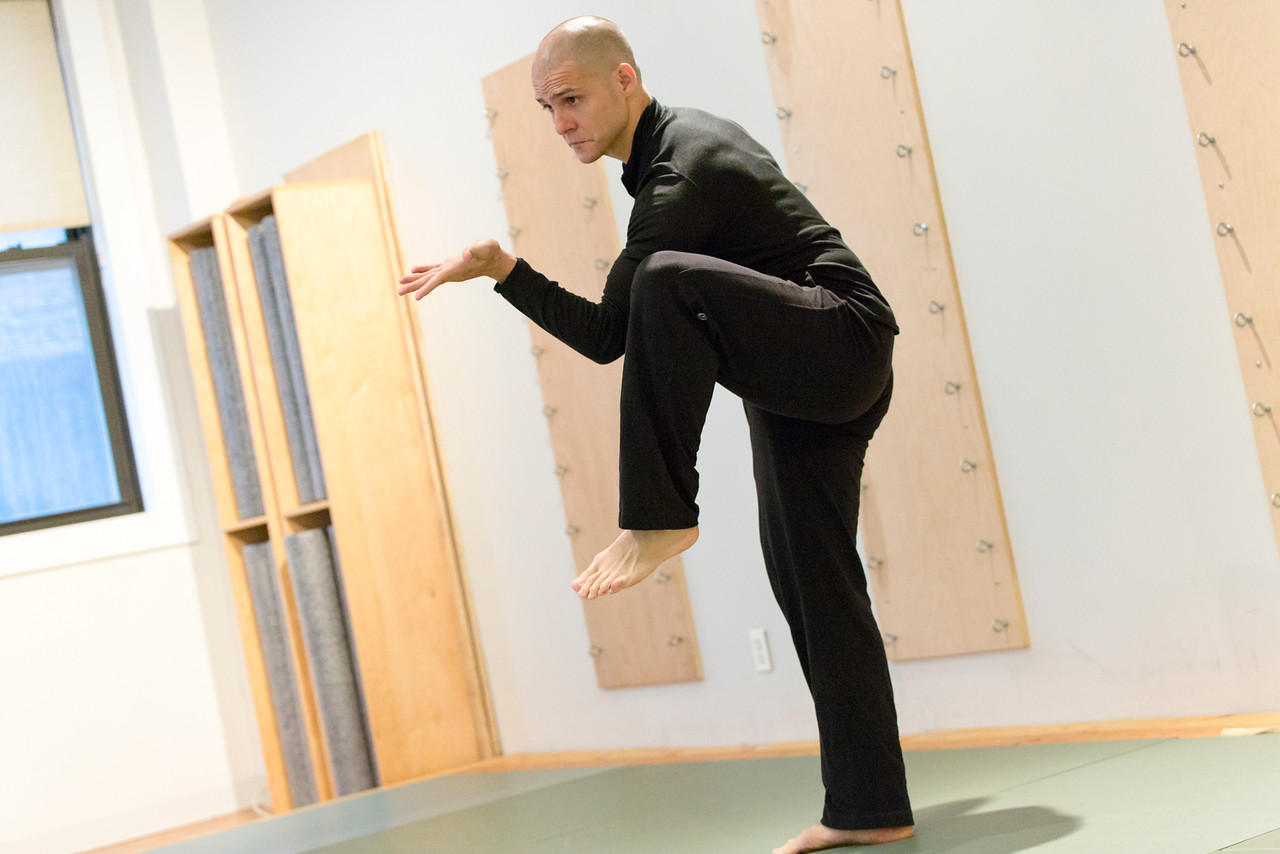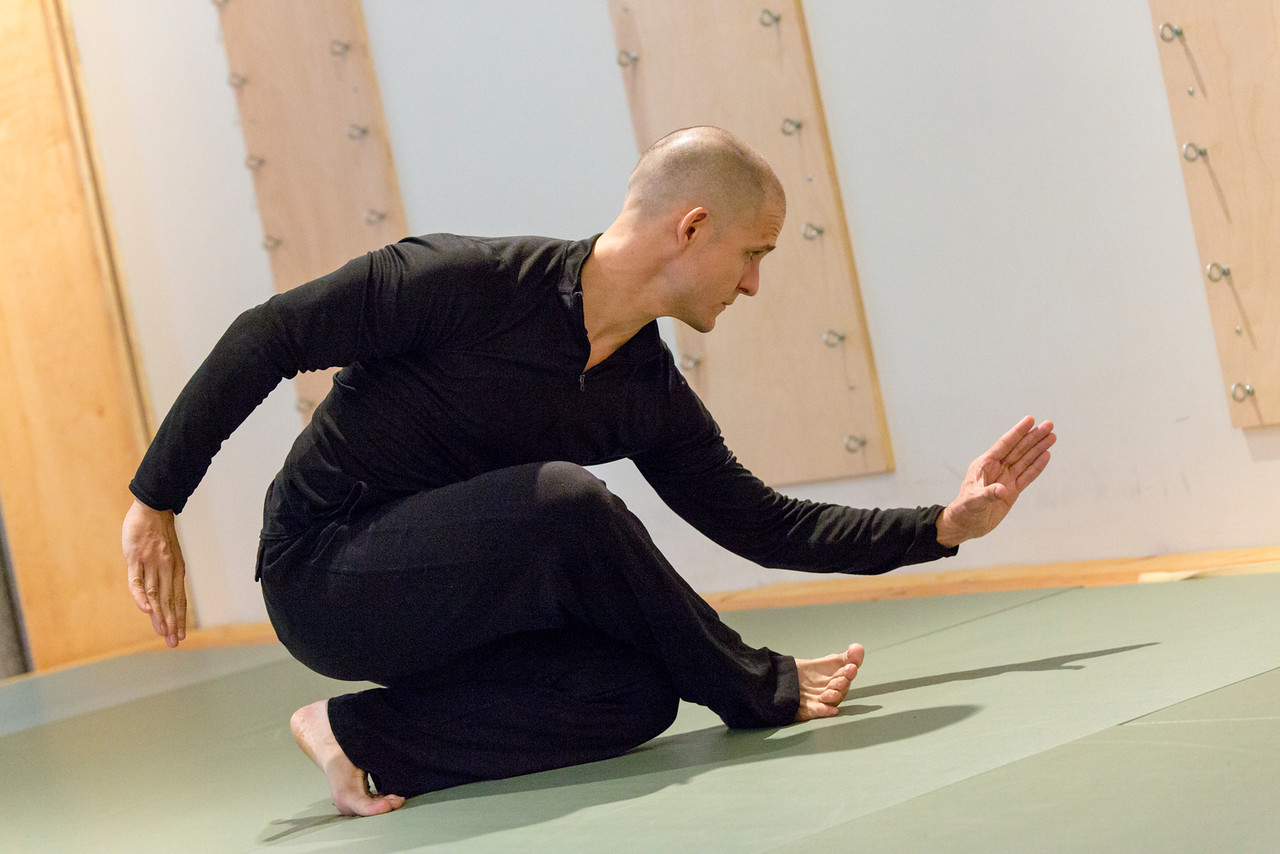Like all internal arts, Xing Yi Quan (pronounced “Shing Ee Chuan”) implements synchronized body motions to generate explosive power, intended to overwhelm the opponent with simultaneous attacks and defenses.
Where Xing Yi chuan differs from its sister arts is that there is a greater emphasis on linear movements and advancing, as opposed to, the greater degree of circular, evasive maneuvering found in Tai ji chuan and Ba Gua zhang . The idea in Xing Yi chuan is to drive through the opponent in a series of wave like, explosive bursts. It is generally performed faster than Tai ji chuan and has shorter forms.
Xing Yi Quan is based on five elements and twelve animal forms. The five elements are Splitting, Drilling, Pounding, Crossing, and Crushing. The twelve animals are Bear, Eagle, Snake, Tiger, Dragon, Chicken, Horse, Swallow, Sparrowhawk, Monkey, Turtle, and Phoenix.
Designed to develop a foundation of strength, balance, coordination, and flexibility in the health and martial arts context. This system contains a practical, step-by-step, approach to learning the foundational principles of the internal martial arts which lead to the development of refined levels of skill. The training methods that are taught are an excellent way of coordinating the mind, body, and breath to produce efficient physical movement. Over time, regular practice will develop relaxed whole body power and mechanical efficiency, which is the hallmark of the Chinese internal martial arts.
Classes
We have three distinct levels for students–beginner, intermediate, and advanced–which all focus on a progressive approach that builds strength, flexibility, and coordination. Everyone in the class, regardless of level, participates in the three elements of each class: Physical conditioning, the training of forms sequences, and finally practicing applications with a partner. The latter element is quite important as it gives the student the ability to practically apply the arts in a fighting/self-defense scenario, and it also ensures that the student does not become lost in theory, or train for years without being able to actually execute what they have learned.



